Filter by

Critical perspectives on cultural memory and heritage
Critical Perspectives on Cultural Memory and Heritage focuses on the importance of memory and heritage for individual and group identity, and for their sense of belonging. It aims to expose the motives and discourses related to the destruction of memory and heritage during times of war, terror, sectarian conflict and through capitalist policies. It is within these affected spheres of cultural h…
- Edition
- -
- ISBN/ISSN
- 9781787354845
- Collation
- XVIII, 315 p.
- Series Title
- -
- Call Number
- 949.601 APA c

Communities and knowledge production in archaeology
The dynamic processes of knowledge production in archaeology and elsewhere in the humanities and social sciences are increasingly viewed as the collaborative effort of groups, clusters and communities of researchers rather than the isolated work of so-called ‘instrumental’ actors. Shifting focus from the individual scholar to the wider social contexts of her work and the dynamic creative pr…
- Edition
- -
- ISBN/ISSN
- 9781526134554
- Collation
- xvii, 250p. : ill.
- Series Title
- -
- Call Number
- 930.1 COM c

Intersections :history, memory, discipline
“A wonderfully rich, insightful and personally touching collection of essays by the Pacific region’s most prolific and engaging historian. Brij Lal writes eloquently and poetically about his professional and political journeys, and the many different people and worlds he has encountered on the way. Readers will be inspired by this collective account of a courageous life committed to the ach…
- Edition
- -
- ISBN/ISSN
- 9781922144379
- Collation
- -
- Series Title
- -
- Call Number
- 996.11 LAL i

Connected & disconnected in Viet Nam :remaking social relations in a post-soc…
Vietnam’s shift to a market-based society has brought about profound realignments in its people’s relations with each other. As the nation continues its retreat from the legacies of war and socialism, significant social rifts have emerged that divide citizens by class, region and ethnicity. By drawing on social connections as a traditional resource, Vietnamese are able to accumulate wealth,…
- Edition
- -
- ISBN/ISSN
- 9781925022926
- Collation
- -
- Series Title
- -
- Call Number
- 959.7044 TAY c

Tokens and social life in Roman imperial Italy
This is a unique and accessible introduction to an underutilised source, Roman tokens, with a focus on those found in Imperial Italy. It explains how tokens can illuminate all kinds of issues such as identity, entertainment, euergetism, imperial ideology, festivals, material culture and everyday life
- Edition
- -
- ISBN/ISSN
- 9781009030434
- Collation
- xix, 248 pages; illustration
- Series Title
- -
- Call Number
- 937 ROW t

Living for the city:social change and knowledge production in the Central Afr…
More than most monographs, this book rests on the collective efforts of the brilliant team of researchers it has been my privilege and pleasure to work alongside during the five years (2016–2021) of the ‘Comparing the Copperbelt’ project. Each of these researchers brought distinctive insights and made major contributions to the project as a whole and to this volume in particular. Ste…
- Edition
- -
- ISBN/ISSN
- 9781108973120
- Collation
- xiii, 182 p ; 24 cm
- Series Title
- -
- Call Number
- 967 LAR l

Personal names in cuneiform texts from Babylonia (c. 750-100 BCE):an introduc…
Personal names provide fascinating testimony to Babylonia’s multiethnic society. This volume offers a practical introduction to the repertoire of personal names recorded in cuneiform texts from Babylonia in the first millennium BCE. In this period, individuals moved freely as well as involuntarily across the ancient Middle East, leaving traces of their presence in the archives of institutions…
- Edition
- -
- ISBN/ISSN
- 9781009291071
- Collation
- 346 p
- Series Title
- -
- Call Number
- 935.5 GRO p

Civil War settlers:Scandinavians, citizenship, and American empire, 1848-1870
Civil War Settlers is the first comprehensive analysis of Scandinavian Americans and their participation in the US Civil War. Based on thousands of sources in multiple languages, that have to date been inaccessible to most US historians, Anders Bo Rasmussen brings the untold story of Scandinavian American immigrants to life by focusing on their lived community experience and positioning it with…
- Edition
- -
- ISBN/ISSN
- 9781108980135
- Collation
- 376 p
- Series Title
- -
- Call Number
- 973.7083 RAS c

The Spanish Lake
- Edition
- -
- ISBN/ISSN
- 9781920942175
- Collation
- -
- Series Title
- -
- Call Number
- 910.09164.SPA
- Edition
- -
- ISBN/ISSN
- 9781920942175
- Collation
- -
- Series Title
- -
- Call Number
- 910.09164.SPA

Tokens and social life in Roman imperial Italy
This is a unique and accessible introduction to an underutilised source, Roman tokens, with a focus on those found in Imperial Italy. It explains how tokens can illuminate all kinds of issues such as identity, entertainment, euergetism, imperial ideology, festivals, material culture and everyday life
- Edition
- -
- ISBN/ISSN
- 9781009030434
- Collation
- xix, 248 pages; illustration
- Series Title
- -
- Call Number
- 937 ROW t
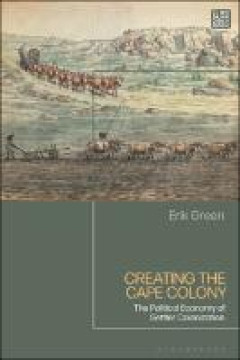
CREATING THE CAPE COLONY :the political economy of settler colonisation
This open access book offers a detailed study of the foundation and expansion of the Dutch Cape Colony to ask why certain regions in the global south became European settler societies from the 16th century onwards. Examining the different factors that led to the creation of the Cape Colony, Erik Green reveals it was a gradual process, made up of ad hoc decisions, in which the agency of indigeno…
- Edition
- -
- ISBN/ISSN
- 9781350258259
- Collation
- viii, 192p.
- Series Title
- -
- Call Number
- 916.8044 CRE g
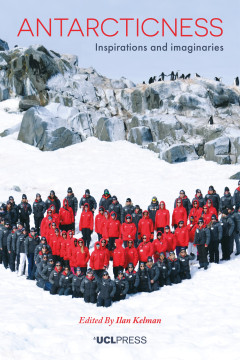
Antarcticness :inspirations and imaginaries
Antarcticness joins disciplines, communication approaches and ideas to explore meanings and depictions of Antarctica. Personal and professional words in poetry and prose, plus images, present and represent Antarctica, as presumed and as imagined, alongside what is experienced around the continent and by those watching from afar. These understandings explain how the Antarctic is viewed and manag…
- Edition
- -
- ISBN/ISSN
- 9781800081444
- Collation
- xxxviii, 289 p. ill;
- Series Title
- -
- Call Number
- 998 ANT I
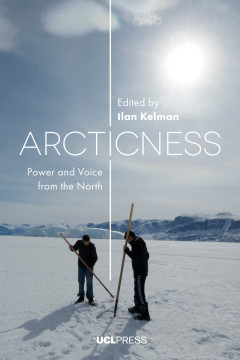
Arcticness :power and voice from the North
Climate change and globalisation are opening up the Arctic for exploitation by the world – or so we are told. But what about the views, interests and needs of the peoples who live in the region? This volume explores the opportunities and limitations in engaging with the Arctic under change, and the Arctic peoples experiencing the changes, socially and physically. With essays by both academic…
- Edition
- -
- ISBN/ISSN
- 9781787350137
- Collation
- xv, 204 p. ill;
- Series Title
- -
- Call Number
- 998 ARC I

Ancient knowledge networks :a social geography of cuneiform scholarship in fi…
Ancient Knowledge Networks is a book about how knowledge travels, in minds and bodies as well as in writings. It explores the forms knowledge takes and the meanings it accrues, and how these meanings are shaped by the peoples who use it. Addressing the relationships between political power, family ties, religious commitments and literate scholarship in the ancient Middle East of the first mill…
- Edition
- -
- ISBN/ISSN
- 9781787355941
- Collation
- xxiii, 303 p. ill;
- Series Title
- -
- Call Number
- 935 ANC E
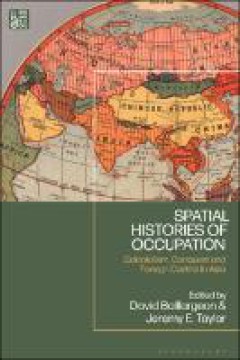
Spatial histories of occupation :colonialism, conquest and foreign control in…
This open access book explores how different spatial geographies emerged, adapted or were transformed in various occupied and colonial settings around Asia, showing how the experiences of those living under occupation shaped and was shaped by new interpretations and typologies of ‘space’. With case studies across South, Southeast and East Asia and through a variety of disciplinary perspecti…
- Edition
- -
- ISBN/ISSN
- 9781350252622
- Collation
- xii, 264p.
- Series Title
- -
- Call Number
- 950.4 SPA b
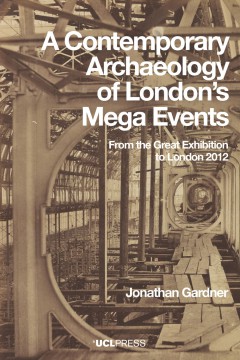
CONTEMPORARY ARCHAEOLOGY OF LONDONS MEGA EVENTS :from the great exhibition to…
A Contemporary Archaeology of London’s Mega Events explores the traces of London’s most significant modern ‘mega events’. Though only open for a few weeks or months, mega events permanently and disruptively reshape their host cities and societies: they demolish and rebuild whole districts, they draw in materials and participants from around the globe and their organisers self-consciousl…
- Edition
- -
- ISBN/ISSN
- 9781787358447
- Collation
- xiii, 279 p. ill;
- Series Title
- -
- Call Number
- 942.100909 CON J
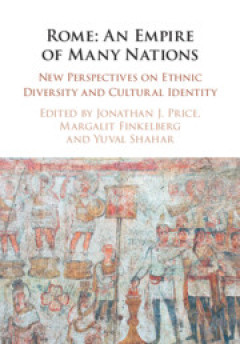
Rome:An Empire of Many Nations New Perspectives on Ethnic Diversity and Cult…
The center of gravity in Roman studies has shifted far from the upper echelons of government and administration in Rome or the Emperor's court to the provinces and the individual. The multi-disciplinary studies presented in this volume reflect the turn in Roman history to the identities of ethnic groups and even single individuals who lived in Rome's vast multinational empire. The purpose is le…
- Edition
- -
- ISBN/ISSN
- 9781009256193
- Collation
- xii, 428 p ; ill
- Series Title
- -
- Call Number
- 937.06 ROM J
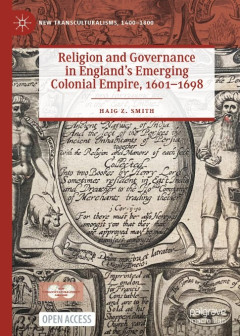
Religion and Governance in England’s Emerging Colonial Empire, 1601–1698
This open access book explores the role of religion in England's overseas companies and the formation of English governmental identity abroad in the seventeenth century. Drawing on research into the Virginia, East India, Massachusetts Bay, Plymouth, New England and Levant Companies, it offers a comparative global assessment of the inextricable links between the formation of English overseas gov…
- Edition
- -
- ISBN/ISSN
- 9783030701314
- Collation
- xi, 292 p.
- Series Title
- -
- Call Number
- 909.097124106 REL H
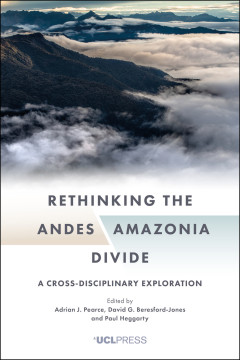
Rethinking the Andes-Amazonia divide :a cross disciplinary exploration
Nowhere on Earth is there an ecological transformation so swift and so extreme as between the snow-line of the high Andes and the tropical rainforest of Amazonia. The different disciplines that research the human past in South America have long tended to treat these two great subzones of the continent as self-contained enough to be taken independently of each other. Objections have repeatedly b…
- Edition
- -
- ISBN/ISSN
- 9781787357358
- Collation
- xxviii, 386 p. ill;
- Series Title
- -
- Call Number
- 980 RET A
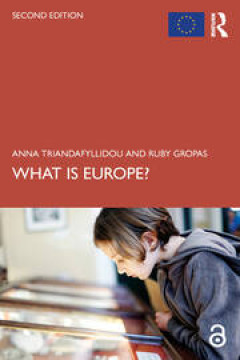
What is Europe?
This authoritative yet accessible introduction to understanding Europe today moves beyond accounts of European integration to provide a wide-ranging and nuanced study of contemporary Europe and its historical development. This fully updated edition adds material on recent developments, such as Brexit and the migrant and Eurozone crises. The concept of Europe is instilled with a plethora of s…
- Edition
- -
- ISBN/ISSN
- 9781003278375
- Collation
- 278 p.
- Series Title
- -
- Call Number
- 940.56 WHA A
 Computer Science, Information & General Works
Computer Science, Information & General Works  Philosophy & Psychology
Philosophy & Psychology  Religion
Religion  Social Sciences
Social Sciences  Language
Language  Pure Science
Pure Science  Applied Sciences
Applied Sciences  Art & Recreation
Art & Recreation  Literature
Literature  History & Geography
History & Geography